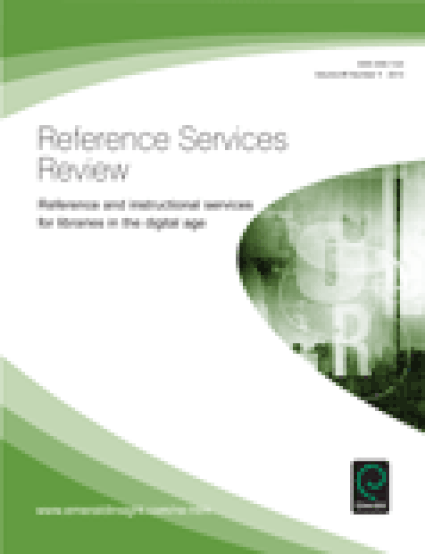
Article
Elicit, Engage, Experience, Explore: Discovery Learning in Library Instruction
Reference Services Review
(2000)
Abstract
Discovery learning is a teaching strategy instructors can utilize to increase the engagement of and content relevance to students involved in library instruction. There are five learning “architectures” which discovery learning comprises: Case‐based learning; Incidental learning; Learning by exploring; Learning by reflection; and Simulation‐based learning. Alone, or in combination, they can be applied to activities and the teaching of skills across the spectrum of complexity, curricular format, and class size. These architectures are not intended to supplant established and more traditional methods of instruction; rather, they serve to enhance the effectiveness and the likelihood of mastery and application of skills and concepts. Though perceptual and attitudinal barriers can create obstacles to implementing discovery learning, these can be overcome. The authors recommend a gradual application of discovery learning activities to instruction.
Keywords
- action learning,
- strategy,
- teachers,
- academic libraries,
- case studies
Disciplines
Publication Date
2000
DOI
10.1108/00907320010359632
Citation Information
Tracy Bicknell-Holmes and Paul Seth Hoffman. "Elicit, Engage, Experience, Explore: Discovery Learning in Library Instruction" Reference Services Review Vol. 28 Iss. 4 (2000) p. 313 - 322 ISSN: 00907324 Available at: http://works.bepress.com/tracy_bicknell-holmes/26/
